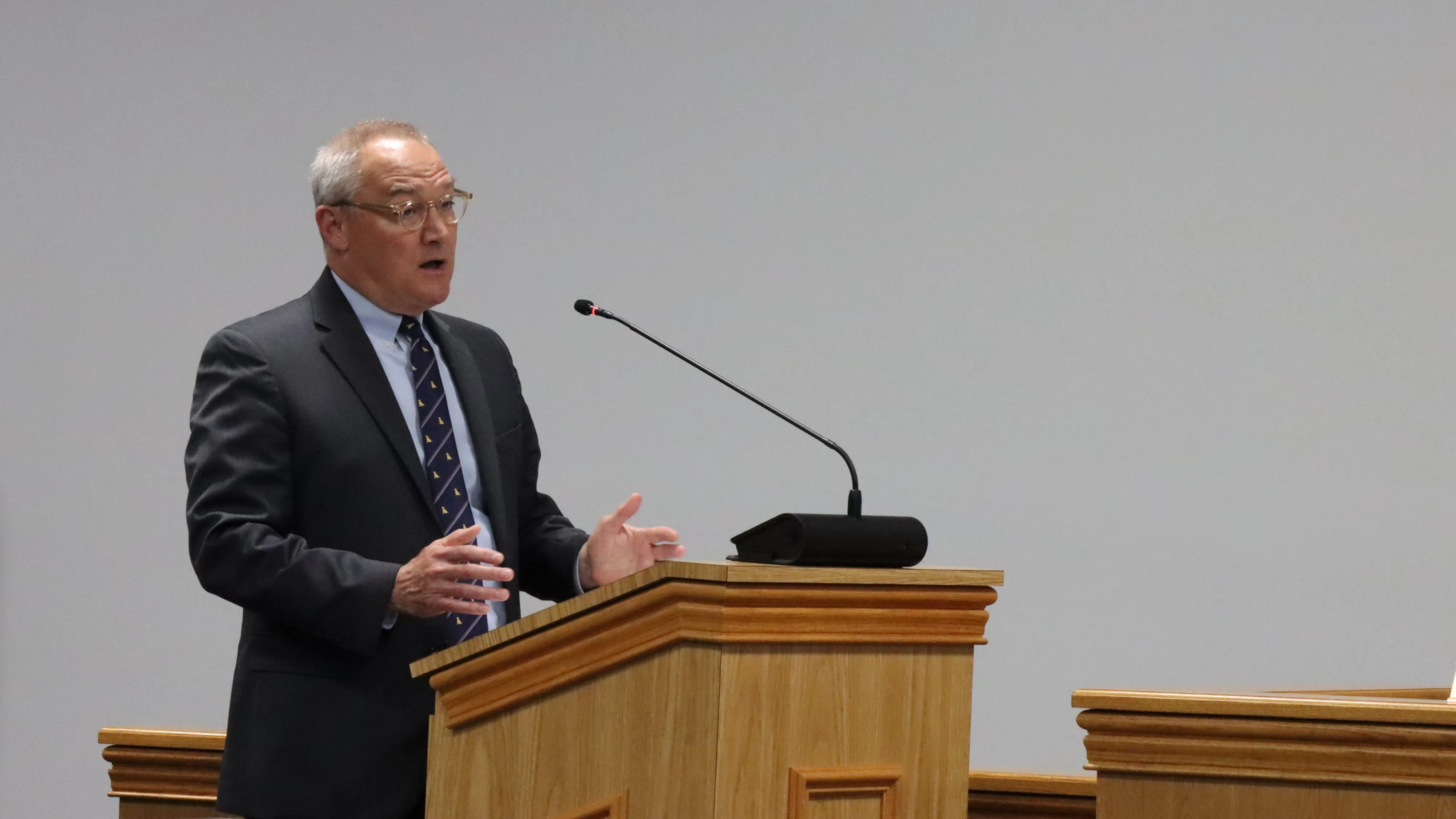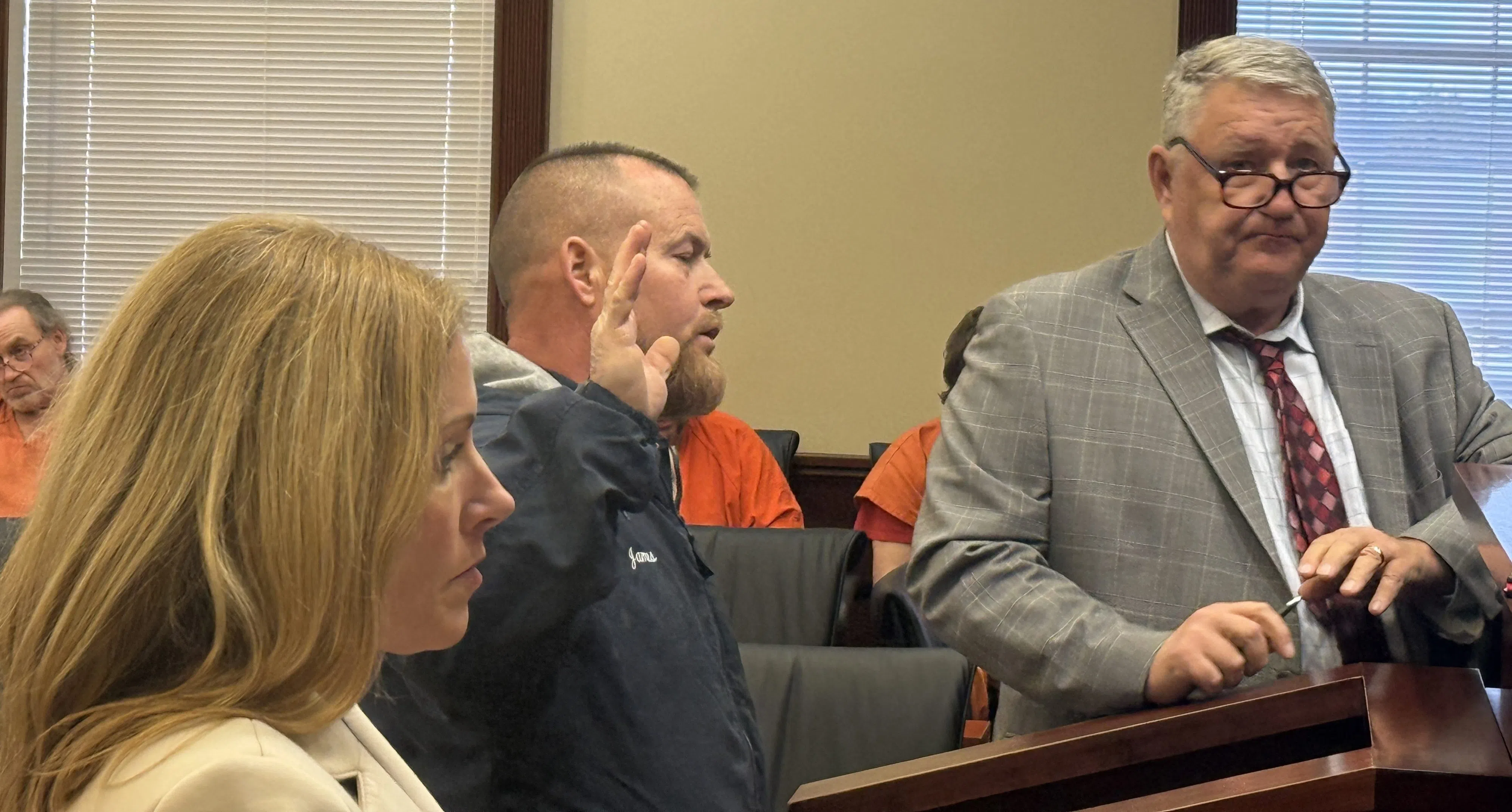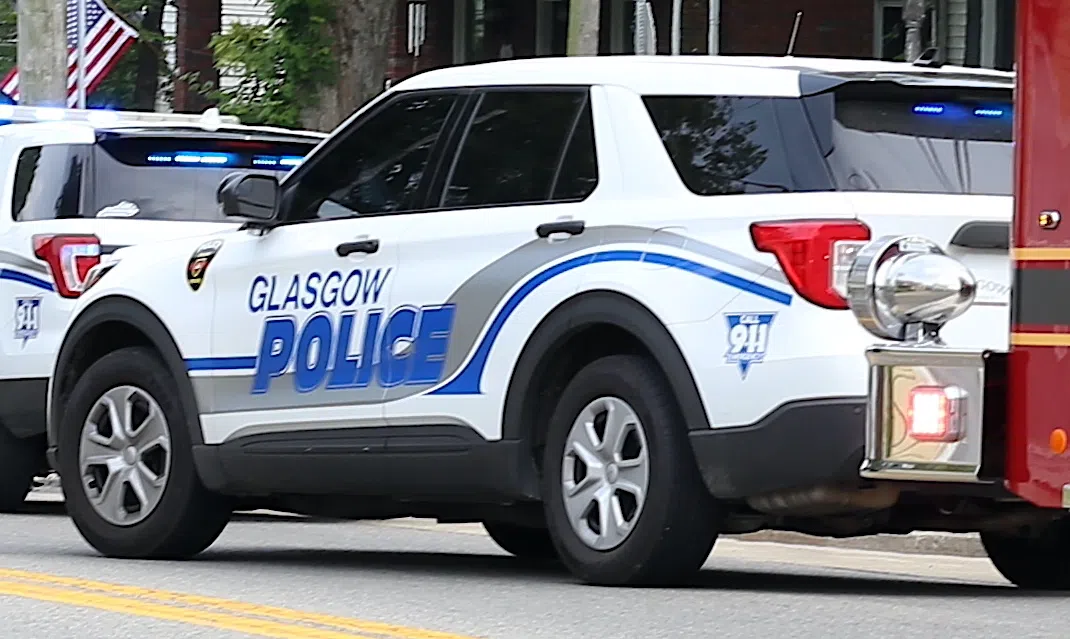By MELINDA J. OVERSTREET
for Glasgow News 1
Glasgow’s city council provided the first of two required approvals to an update of the city’s ethics ordinance and a budget amendment at its regular meeting Monday, along with its second nod to rezone properties along Cleveland Avenue. Those items came after a briefing on several changes created by state legislation this year that may affect city governments.
City Attorney Rich Alexander told the council members that 1,080 bills were filed in the Kentucky General Assembly for its session that concluded in March, and 148 of those were actually enacted, but he would be focusing on the ones that had some bearing on municipal law. Unless otherwise noted, he said, the majority take effect June 27.
Over the next 24 minutes, he discussed 18 pieces of legislation covering a wide variety of topics. Although it was near the end of his list, Alexander noted he felt Senate Bill 100 was “an important one, in my opinion,” and “highly relevant in today’s times.”
“Statistics show that traditional tobacco/cigarette use among teenagers is at an all-time low, but teen vaping is rising dramatically,” he said. “Of the 40 million Americans that smoke e-cigarettes now, statistics show that 2.6 million are of middle school or high school age.”
The new law for the commonwealth establishes the Division of Tobacco, Nicotine and Vapor Product Licensing to license and regulate the distribution sale of such products. It requires sellers of these products to obtain a license by Jan. 1 and provides inspection and enforcement powers to the Department of Alcoholic Beverage Control, under which the new division would operate.
“It stipulates that any person under the age of 21 found to be in possession or consuming these type of products may be required to participate in a community-service program or attend a tobacco cessation program,” the city attorney said.
Although the licensing aspects don’t kick in until the beginning of next year, the rest of the law took effect in March, he said.
“I think [police] Chief [Guy] Howie is probably very much in favor of this,” Alexander said, as Howie emphatically nodded his head.
Alexander said he and Howie had talked about trying to address concerns about this issue on a local level before this law was passed, but he thinks at this point they will wait to see what effect the new state law has first.
The other legislative topics he covered were:
– an expansion of the time that members of planning commissions and boards of adjustment have to complete their initial training and continuing education and a narrowing of the types of parties who can appeal a final action by a planning commission to those who own property within the zone where the property in question is (House Bill 321);
– a change in the way annual paid leave for police officers is paid from requiring all of it up front to allowing it to be accrued through the year (HB 369);
– the removal of the power to arrest from local alcoholic beverage control administrators and investigators unless they are also a certified peace officer (HB 437);
– the addition of more specific language in the Kentucky Open Records Act as to the exemption allowed for law enforcement records pertaining to investigations in a way that may allow more transparency (HB 520);
– the allowance of certified police officers from other states to transfer their credentials and qualifications to obtain a law enforcement position in Kentucky if they meet certain criteria and a change in the type of training required for part-time emergency telecommunicators, more commonly referred to a dispatchers, both of which are meant to make it easier to recruit new employees for these positions (Senate Bill 237);
– the option – but not a requirement – to create a local appeals board for hearing complaints about fire chiefs’ or fire marshalls’ final orders (SB 25);
– the reduction of the individual income tax from 4 percent to 3.5 percent in 2026 (HB1);
– the ability for landlords or their authorized agents to request to request a law enforcement officer to remove someone from a property if they meet the specified definition of “squatter” without having to provide 30 days’ written notice and, if they don’t vacate, having to file an eviction complaint and having a hearing in district court (HB 10);
– the allowance of 15-year-olds to apply for an instruction permit to drive a motor vehicle, which took effect March 25 (HB 15);
– the allowance of political yard signs in planned “communities” – developments, subdivisions, etc. – where a homeowners association or other such entity may have had rules prohibiting them, for up to 30 days prior to the election and no more than seven days afterward (HB 27);
– the placement of qualified manufactured homes, the definition of which was changed, in any zoning area where other single-family dwellings are permitted, taking effect July 1, 2026 (HB 160);
– the requirement that the Department for Vehicle Regulation to issue towing and/or storage certificates of towing companies and/or storage facilities, the requirement that those businesses maintain a single-rate sheet that is “reasonable and customary,” and the requirement of those businesses to notify vehicle owners within five business days when a civil or criminal hold has been placed on their vehicle and within two days when such a hold has been released and the location (HB 493);
– the creation of grants to assist local governments on road projects to rehabilitate a roadway back to its original condition (no capacity increases or other improvements), with a maximum amount of $500,000 and a matching requirement of 10 percent to 20 percent (HB 546);
– the removal of the cap of 1 percent on additional transient room taxes that multicounty tourism and convention commissions may levy above the 3 percent rate, if the funding is used to promote regional tourism and convention efforts (HB 552);
– the allowance of two or more local governments constituting a multicounty region to enter into an interlocal agreement to develop real estate as part of a regional economic development project, but only if its at least 300 contiguous acres and results in bringing at least 500 new jobs to that region, and allowing the implementation of an ad valorem tax within that district (HB 606);
– the allowance of certain street-legal, special-purpose vehicles, e.g. all-terrain vehicles, to operate on local public highways, but only under certain conditions and a city would have to pass a local ordinance to opt in to this possibility before this could happen (SB 63); and
– the prevention of holding landlords, rather than tenants, responsible for emergency response fees, provided the emergency was not the result of a failure on the part of the property owner to maintain the property according to current building codes and such (SB 129).
With Councilman Randy Wilkinson absent for the entire meeting and the departure of Councilman Terry Bunnell during Alexander’s presentation, the remaining seven members of the council then unanimously approved:
– second reading of the ordinance rezoning of approximately 20.035 acres at 1517-1523 Cleveland Ave. from light industrial (I-1) to highway service business (B-3);
– first reading of a new ordinance establishing a Code of Ethics – essentially repealing and replacing the existing such ordinance – which Alexander summarized; and
– first reading of an ordinance amending the budget to transfer $98,400 from one General Fund expense account to another to accurately reflect a bond-interest payment for that amount.
The next regular meeting would normally fall on Memorial Day, so the council instead will have a special meeting May 27, beginning at 6 p.m. in Council Chambers on Floor 2 of the Luska J. Twyman Municipal Building, 126 E. Public Square.
…………………………
TO LEARN MORE
Further details about all the state bills Alexander mentioned and the rest of the ones taken up by the 2025 General Assembly are available on the Kentucky Legislative Research Commission website.















Comments